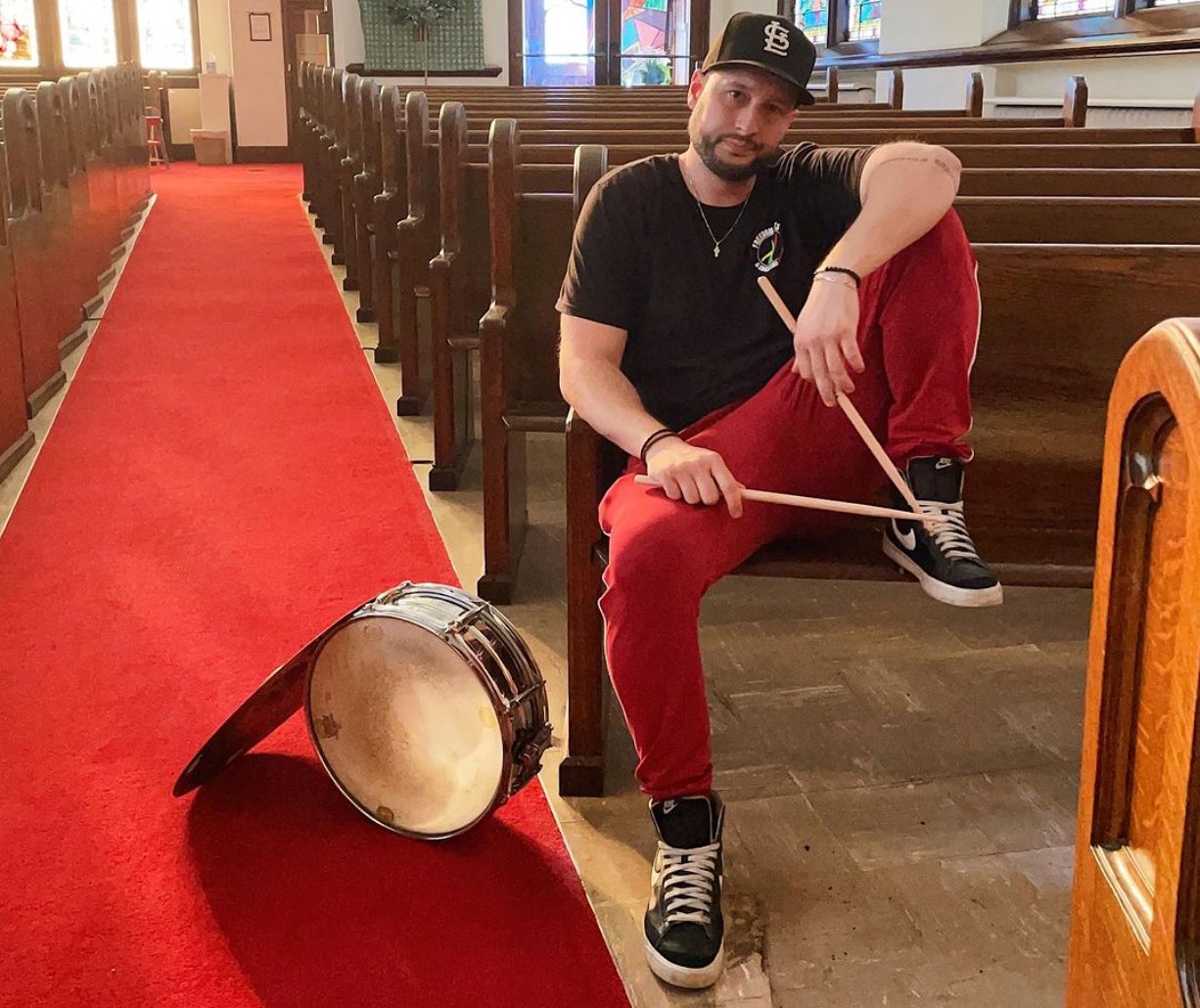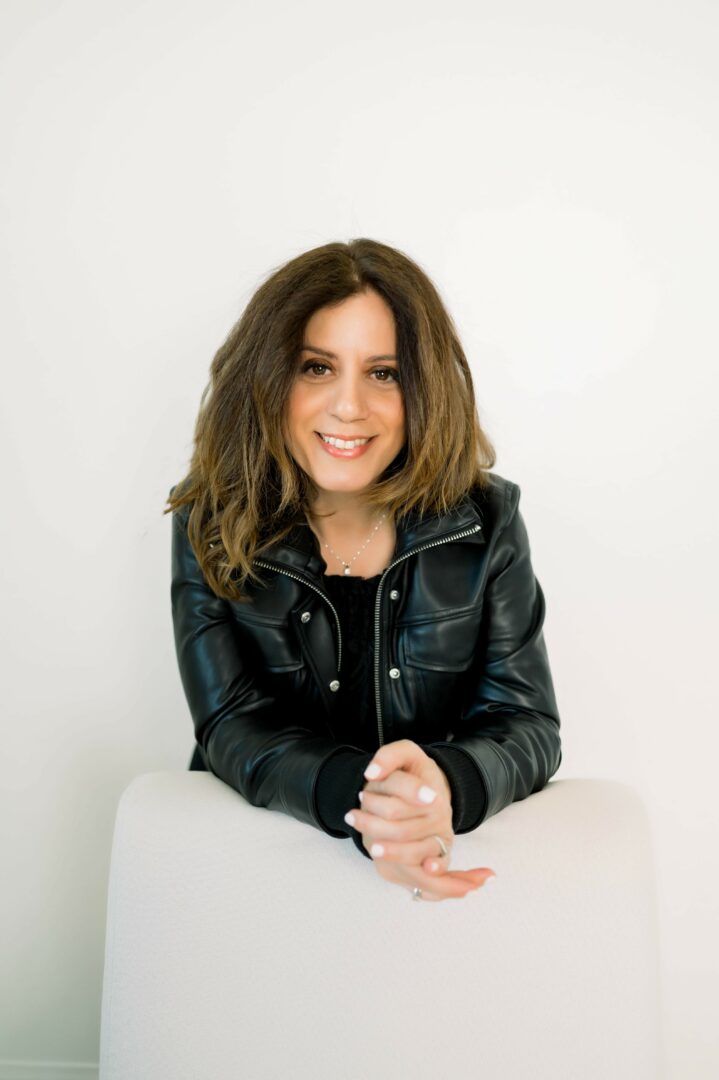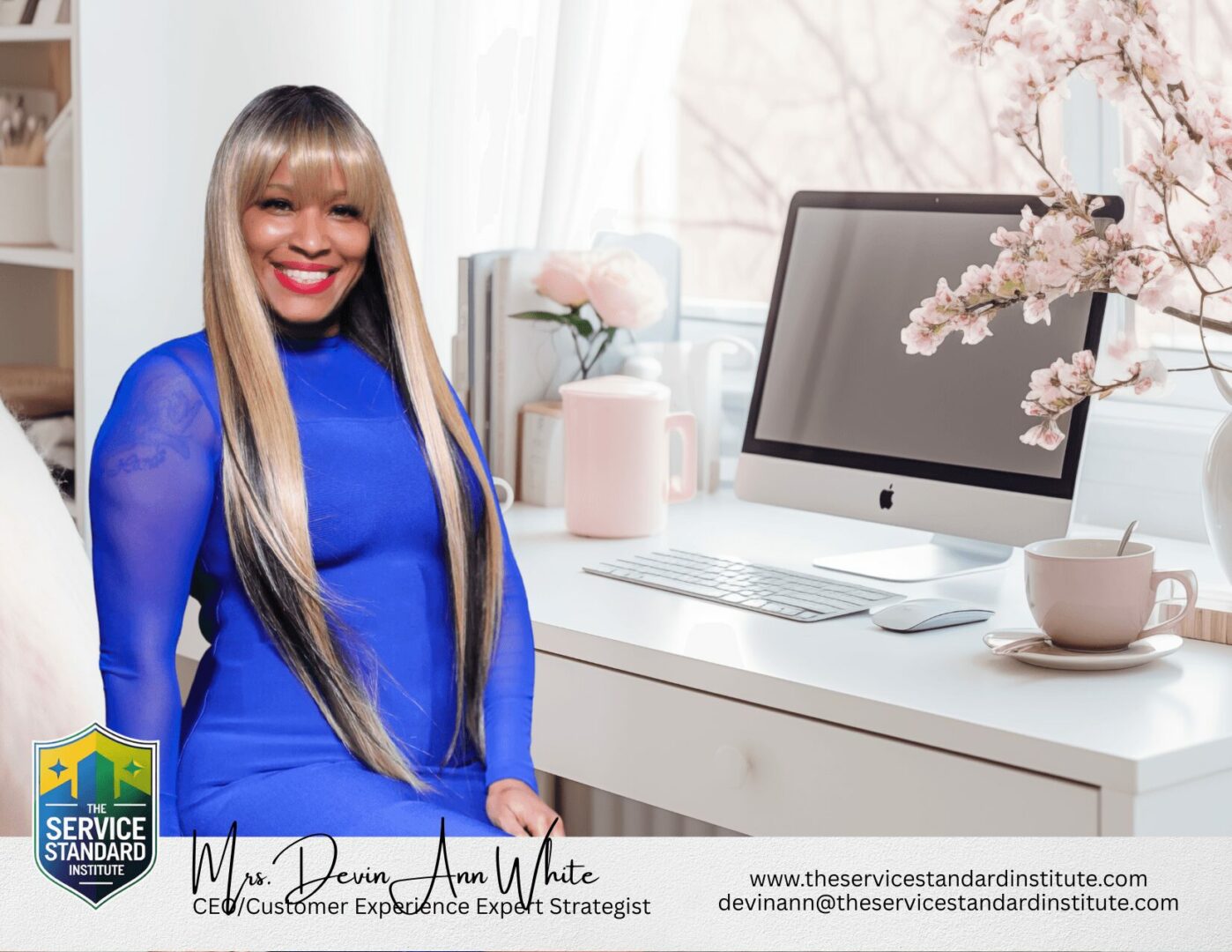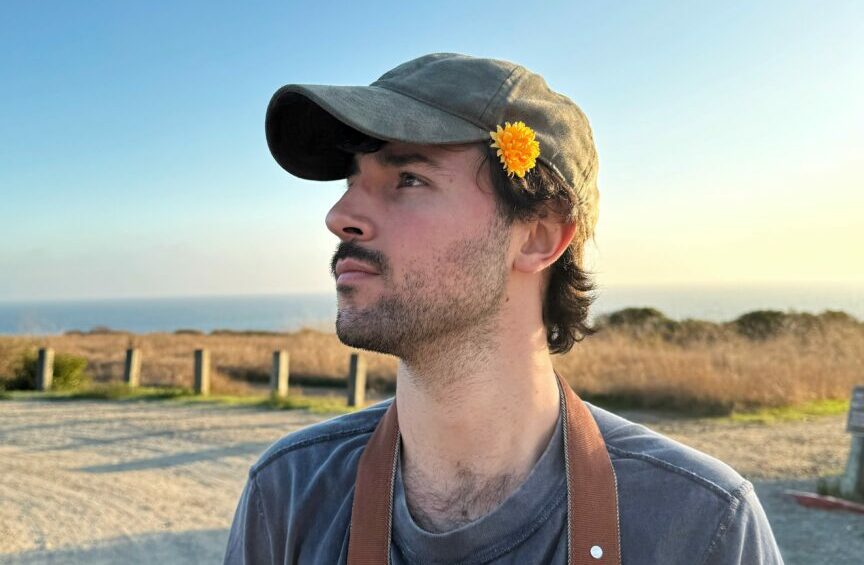We’re excited to introduce you to the always interesting and insightful Andrew Gibson. We hope you’ll enjoy our conversation with Andrew below.
Alright, so we’re so thrilled to have Andrew with us today – welcome and maybe we can jump right into it with a question about one of your qualities that we most admire. How did you develop your work ethic? Where do you think you get it from?
I was raised by workers – my parents, teachers, coaches, church community were all workers. When I say workers, I mean folks who got up early, put in a full day, and did not clock out early. And they did it for love. A sense of putting in work for who and what you love was on full display by all the adults I remember from my childhood.
My mom’s got Sicilian roots and comes from a proud, working-class family. For most of my childhood, she was what we called a “professional volunteer” – she coordinated several ministries at our church, drove the carpool for me and my brothers’ teams, volunteered at daycares and schools, and always had a big pasta dinner ready for us every night. She took a lot of time to really get to know me and my brothers, and lavish us with things she thought would fuel our creativity or interests. I’d often come home from school to a stack of books about outer space because I asked one question about the planet Saturn, or half a dozen Motown CDs because I heard a Supremes song on the radio and said I liked it. She didn’t seem to miss a beat and seemed to do everything out of a steady, abiding love for me, my brothers, and her community.
My dad is from a small, poor town in southern Missouri. He played baseball and basketball like he was destined for the big leagues (like most of us did), but ended up getting a full-time job in the tech world and devoted himself to being a family man. He got up early every day and went to work a job where he
was often under appreciated, but he kept a good attitude and was never too tired to play ball with me when he got home. On the weekends he would coach my teams and volunteer at our church for what seemed like more hours than existed in a weekend. I never once remember him complaining about work or how much he had to do, even when he was clearly worn out. He seemed to do everything with a joy and a love for helping people in any way he could.
When I wasn’t spending hours at church on the weekends with my parents, I was playing a lot of team sports. I always felt highly motivated to not let my teammates or coaches down, and I had outstanding coaches who really knew how to balance praise and critique. Baseball was my main sport and my primary position was catcher, and anyone who knows the game knows how much responsibility that position carries when you play it right. I loved practice, and I figured out that the ones that really love the game are the ones that love practice too. I loved getting dirty and working hard, improving my game little by little. I also figured out what it meant to “dig deep” and find that little extra bit that you need to push through a long, hot inning behind the dish. It was all for the love of the game.
Music slowly started to take over, and by high school I shifted my focus from baseball to music, and it took over every minute of my life. I went to Parkway South High School which had the most incredible directors in Lisa Kinworthy and Chris Becker, and they advocated constantly for funding and more and more music classes. I was in all of them. I joined the drumline and percussion ensemble, played in the
big band and jazz ensembles, concert and symphonic band, and formed a new band with my friends every 15 minutes (but none of them ever broke up). I took music theory classes, piano classes, and played in the pit orchestra. I got to school early to practice and stayed late to rehearse. When I was at home, I’d go down in my basement, put on headphones, and drum along to James Brown, Miles Davis, and a Tribe Called Quest. I deeply loved music and did not want to do anything else. I never felt a strong desire to be better than anyone else, but I had a fire to be the absolute best that I could be and learn everything I possibly could about drums and music. That fire has not gone out, and neither has the desire to work at it because I love it.
The next part of the interview is where we’d love to learn more about you, your story and what you are focused on professionally – whether it’s a business, nonprofit, artistic career etc. Please tell our readers about what you do, what you feel is most exciting or special about it, as well as anything else you’d like folks to know about your brand/art/etc. If relevant, please also tell our readers about anything new
I’ve got four jobs: freelance musician, Executive Director of Freedom Arts & Education Center, Director of Partnerships for Faith For Justice, and Music Coordinator at St. John’s Church. Thankfully, all four of these jobs often intersect, so I don’t usually feel like I have to think about four distinct spaces, people, or responsibilities. They all go together really beautifully centering the arts, education justice, and dismantling white supremacy in all its forms, and have given me a platform to be a part of important local and national initiatives, like The People’s Plan and Debt Free Justice.
Freedom Arts & Education Center is a nonprofit youth arts organization that I co-founded with a really great team in 2012. We create artistic, academic, and advancement opportunities to feed, heal, and teach the youth of St. Louis. By removing systemic barriers and building resourced spaces, Black and Brown youth realize their own power to become highly creative, literate, passionate, independent thinkers. We support youth and their families through accessible community arts programs, decolonized educational resources, enriching multidiscipline summer programs, in-school advocacy, and job opportunities.
Faith For Justice in another nonprofit that I co-founded in 2015 out of the Ferguson Uprising. FFJ connects people to and activates them for Black-led movement organizations and campaigns. We confront bigotry in all its forms from a faith perspective, with a focus on anti-racism, providing access to healthcare, defunding the police, and creating spaces for healing and safety for the most marginalized.
St. John’s Church is a historic, Black-led church in the Fairground neighborhood. The church is the home of Freedom Arts, FFJ, and a few other nonprofit organizations and grassroots collectives. I’ve been in church my whole life, and our Sunday morning services are unlike any other I’ve been a part of. The music is quality and unique, and I’m proud to say that I was able to help build such a strong squad of musicians thanks in part to my years on the St. Louis music scene. Our children and elders are well cared for, the preaching and teaching is challenging and affirming, and our congregation is dedicated to being a catalyst for neighborhood wholeness & growth.
And with all of that, I’m still an active performing and recording musician, which is what I think really led me to running these nonprofits and my community organizing work. I’m a drummer, and I have been told I have a very distinct sound in terms of the specific instruments I use and just the way I play. My mom played a ton of r&b and soul music when I was growing up and I listened and studied those albums religiously. I had NO friends who were listening to James Brown, Otis Redding, or Aretha Franklin with me, but I couldn’t get enough. That foundation carried me to studying jazz in college, and then I found opportunities on the music scene as a live hip hop drummer which increased my repertoire. So between my musical pedigree and the fact that I have carefully chosen and tuned pieces for my drumset, I feel that I do have a distinct sound. I work on it every single day with the goal of not just only being distinct, but being great. Music has been my focus since high school and the more I grew as an artist, the more I saw how those same passions, skills, and work ethic translate directly to correcting oppressive systems and structures. It all goes together for me, and I am thankful to work with and for people I love doing things I love.
Looking back, what do you think were the three qualities, skills, or areas of knowledge that were most impactful in your journey? What advice do you have for folks who are early in their journey in terms of how they can best develop or improve on these?
Develop a mental toughness. So many hardships will get in the way of you accomplishing a lofty goal, doing something far fetched, or challenging societal norms. You will experience setbacks and you will fail. You might lose people and get talked about wrong. You may have to step back at times, reinvent yourself, shift your strategy, and even concede some real losses. But you have to have a mental toughness to never give up and never give in. Learn how to get knocked down, acknowledge that you got knocked down, and get right back up. Learn how to lose and not to love it, but to not be consumed by it. Do not let the words of your enemies infect your mind to the point that you agree with them. If something matters to you and you have been shown that it’s within your purpose, and it is something that contributes to the greater good, keep that as your focus and never take your eyes off it. Do your great work and never come down.
Be fully present, and have a future focus. Living and working like you have both feet in the present but are leaning towards the future is only possible with a mental toughness and discipline. I’ve worked with some people who are only future focused, so they end up neglecting the people around them right now and not appreciating all the beauty and goodness they have today. Acknowledge where you are and where you want to go, and make sure everything you do aligns with that. And when you mess that up, draw on that mental toughness you developed. learn from your mistakes and then get right over them. Baseball and music really taught me this. If I’m tripping over a mistake or error I just made, then I’m going to make 12 more. It’s a domino effect. So be in each and every moment, fully present, while always having a focus on the future you’re aiming for.
Do it all for the love of the people. Build a solid team of people who are as focused on the goals as you are, who you can learn from, and who will help keep you on track, pick you up when you fall, and always tell you the truth. Make sure you and that team is hyper focused on whatever the mission and goals are, for building the community you believe in. If what you’re trying to accomplish doesn’t benefit people, it’s a waste of your time. If it contributes to or upholds oppressive structures, then you’re doing the wrong thing and you are using your skills to enforce the empire. Divest from those places because that’s not where love lives. If it’s not for the love of the people, then it will ultimately harm people. There’s no middle ground, no neutrality. So do what you do with and for the people, do it for love.
What was the most impactful thing your parents did for you?
In addition to teaching me a solid, loving work ethic, both my mom and dad always supported my goals and activities when I was growing up. I don’t remember them ever telling me I was too loud or doing too much, they’d just remind me it was time to go to sleep, get my homework done, or do something else. Like I said, I’d come home to stacks of CDs and books from my mom, and my dad coached my teams and put in extra time with when practice was over. They saw the passion I had and they really made me feel supported as I pursued my goals and interests. I really hope I am doing that for all my kids.
Contact Info:
- Website: https://linktr.ee/agstl
- Instagram: https://www.instagram.com/agstl
- SoundCloud: https://soundcloud.com/agstl
- Other: https://faecstl.org/
https://www.faithforjustice.org/
https://www.stjohnsbeloved.com/
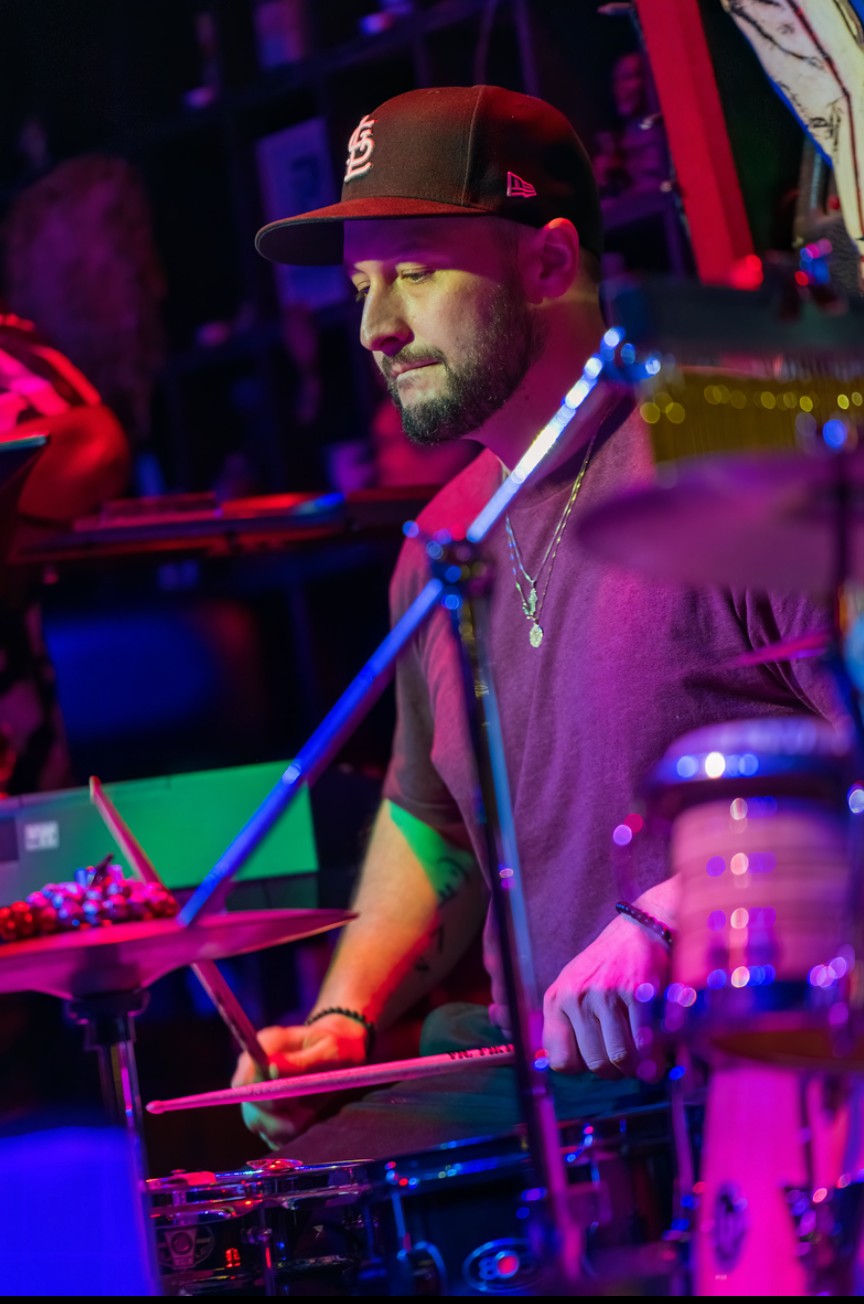
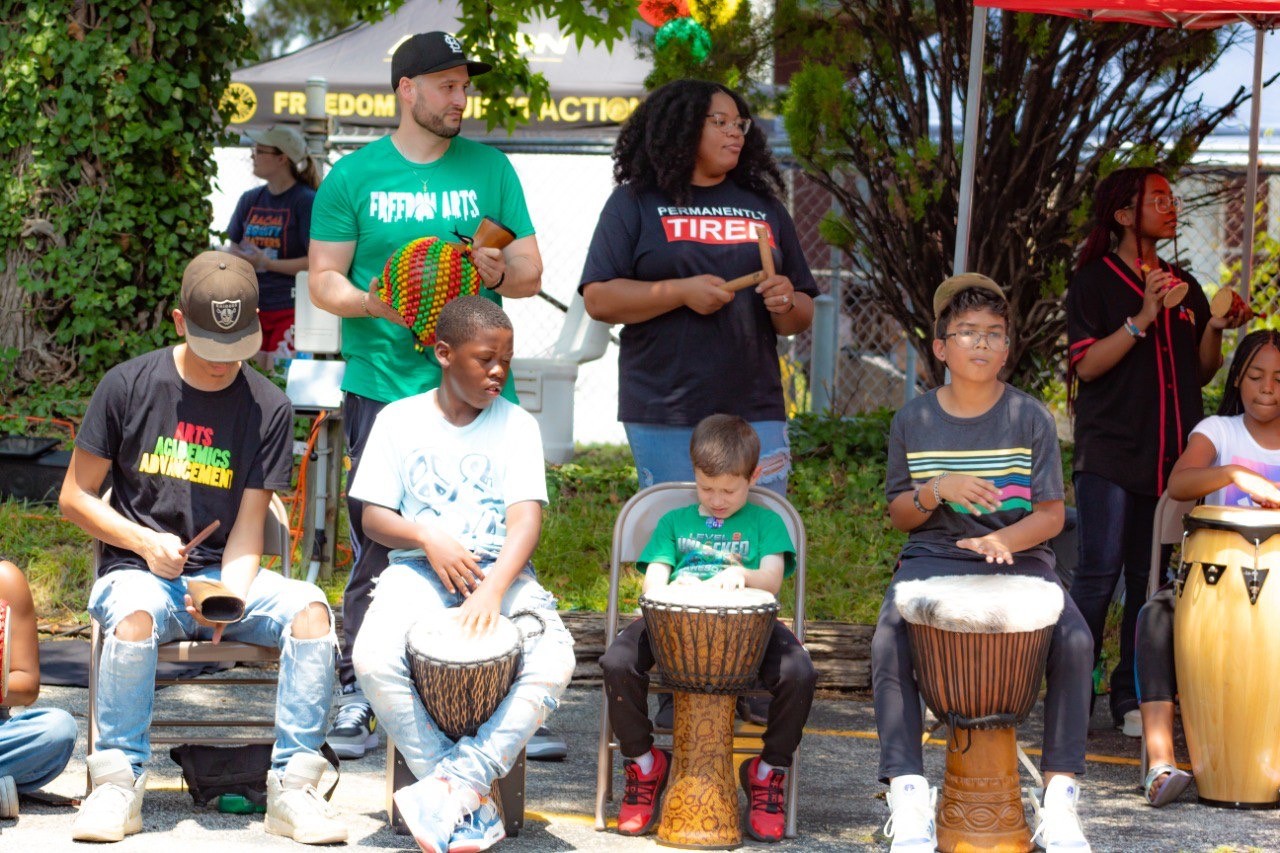
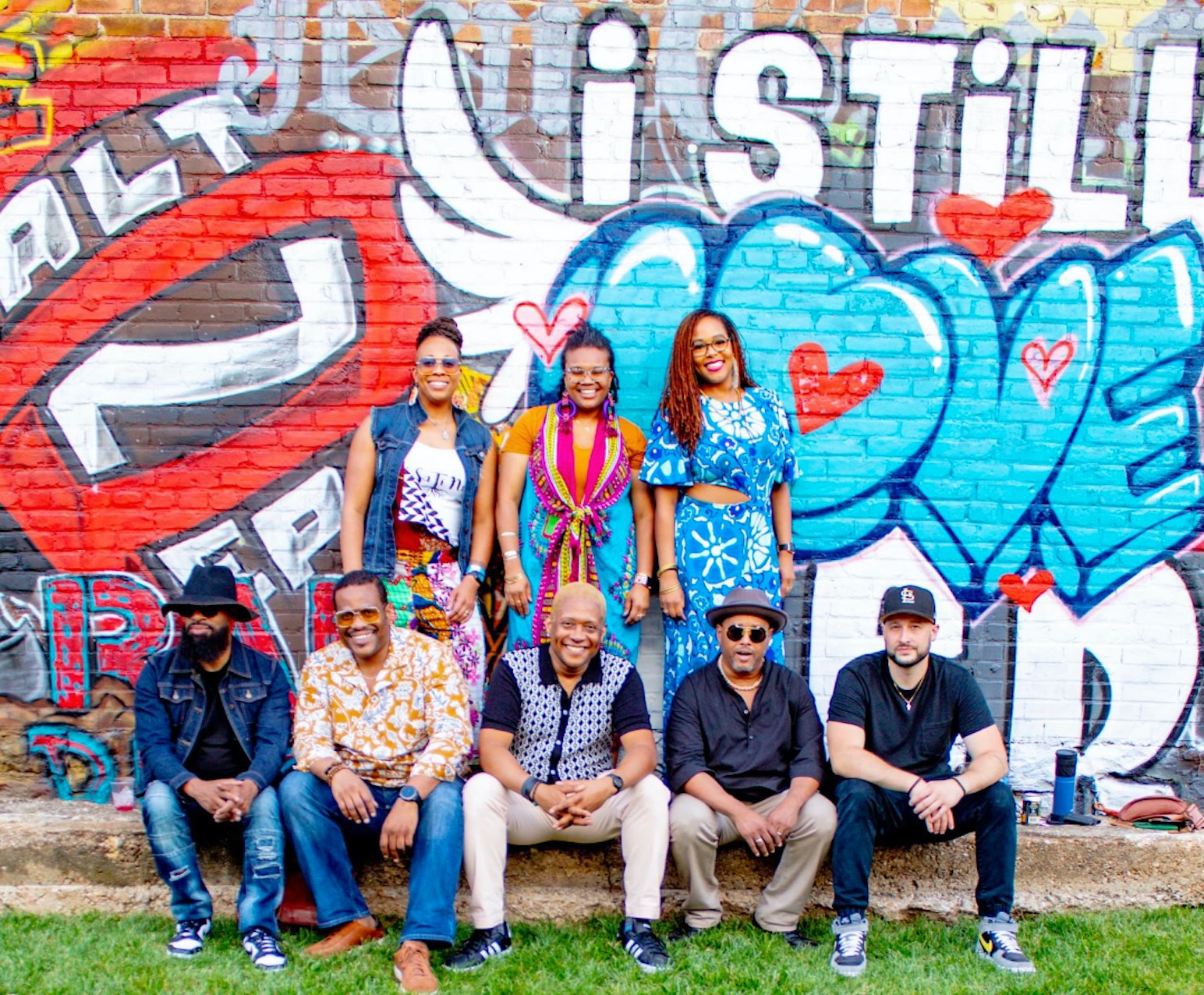
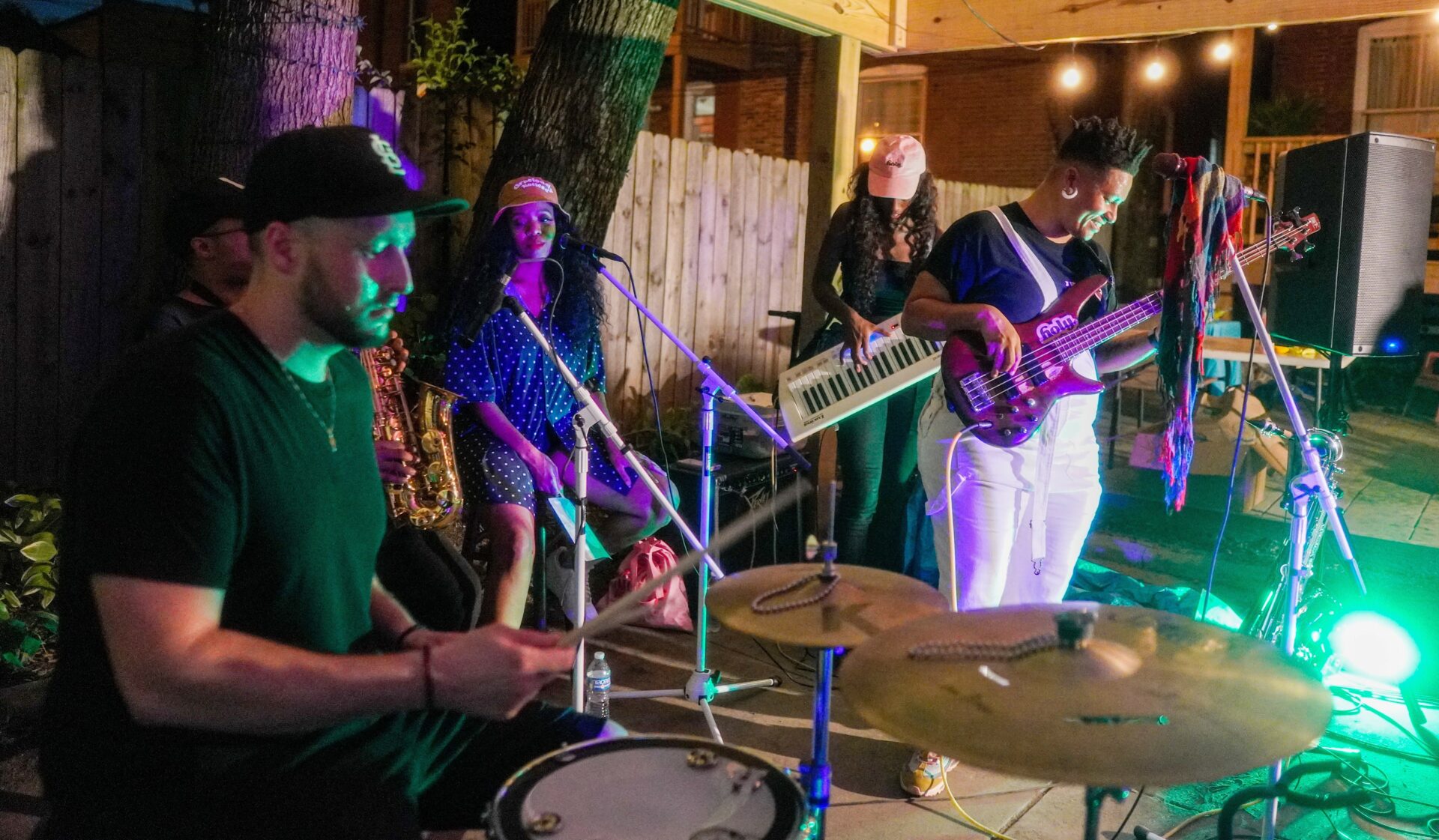
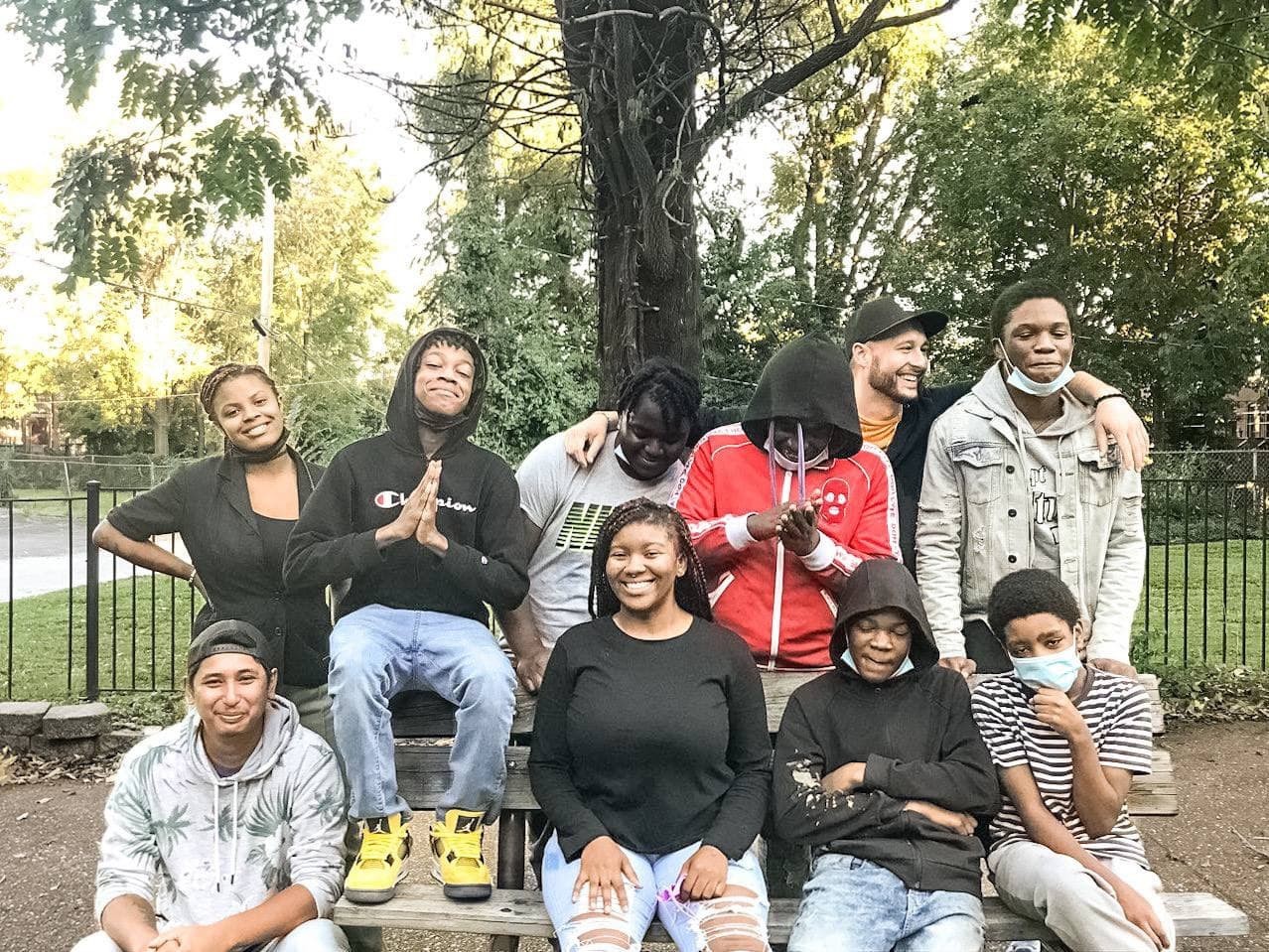
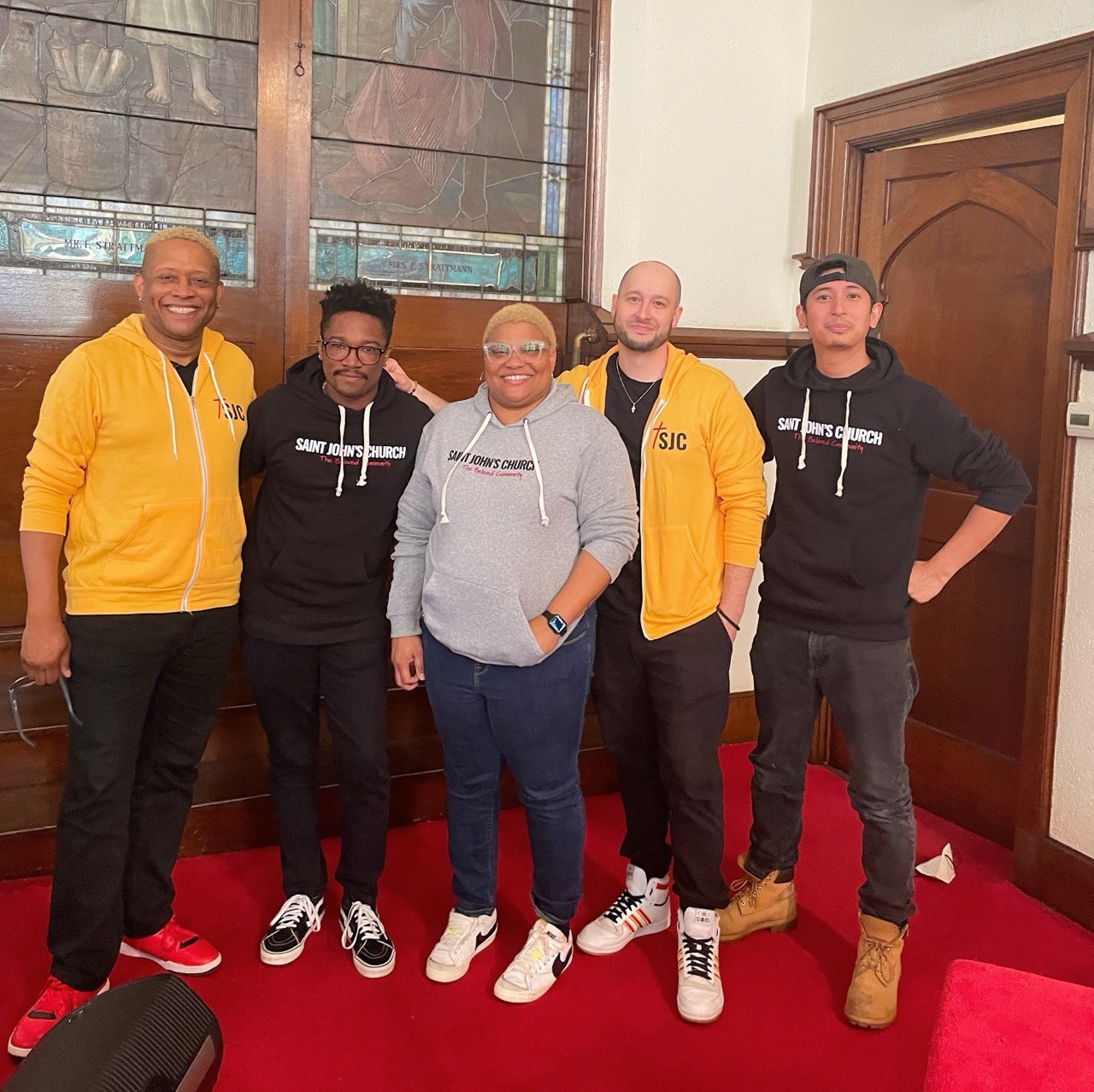
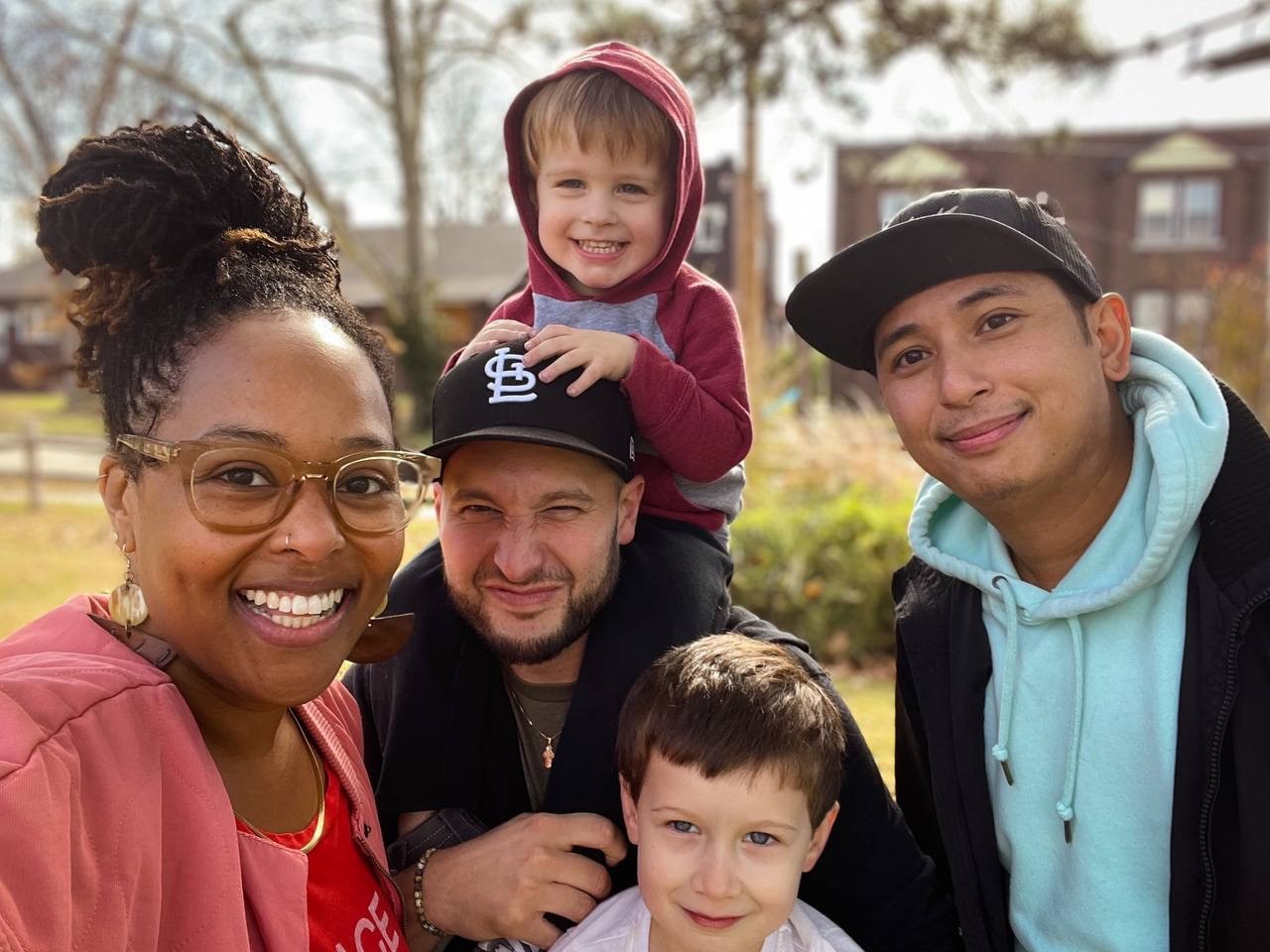
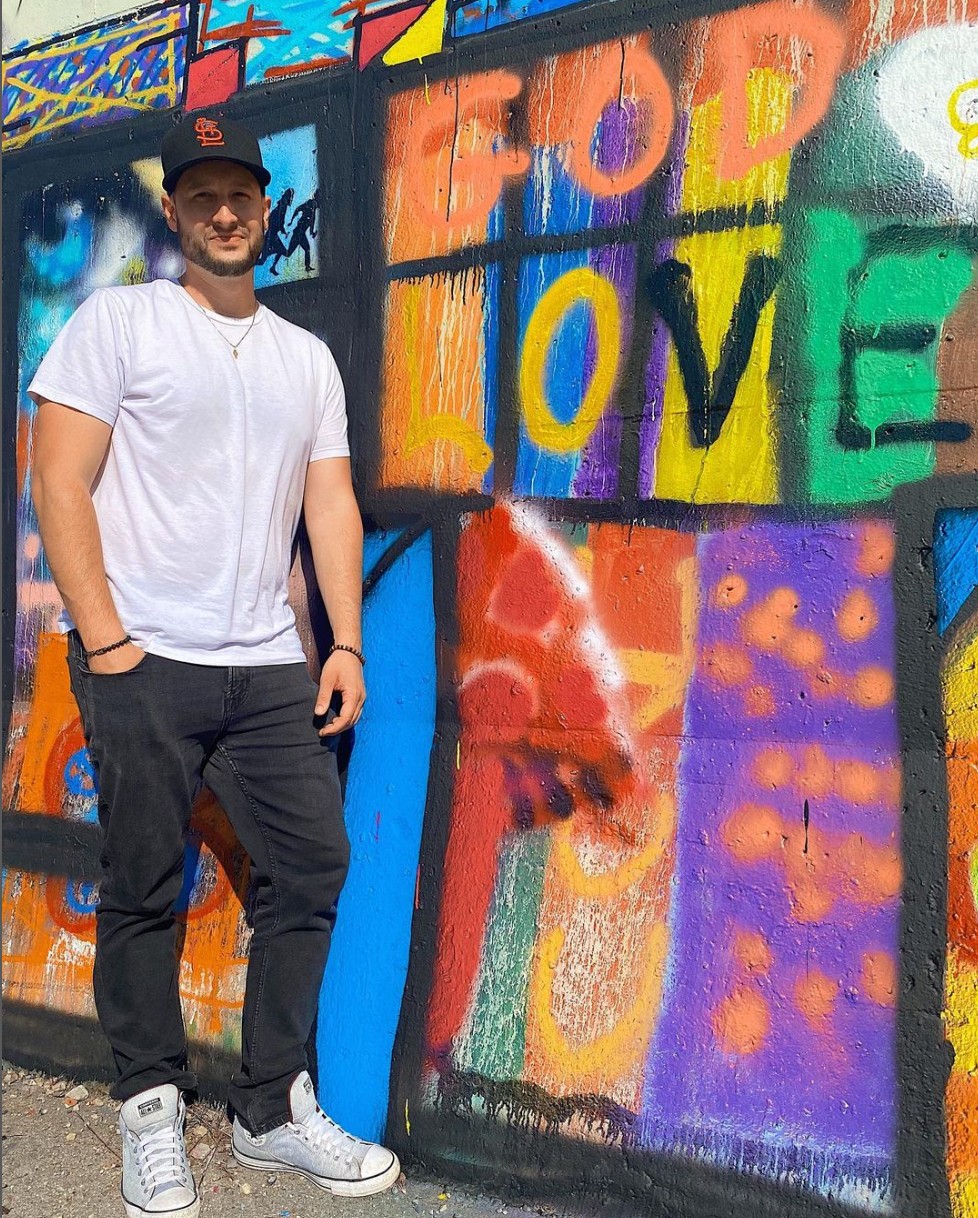
Image Credits
Kita Anthony, Nikki Ellis, Reed Radcliffe

